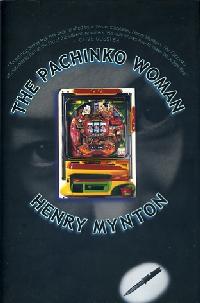The Pachinko Woman
Korean connections in Japan and America
By William Wetherall
First posted 10 December 2006
Last updated 1 January 2007

Henry Mynton "Henry Mynton" is a pseudonym, according to the dust jacket, "of an American who has lived in the Far East for more than thirty-five years." Apparently he graduated from Harvard, was raised in New England, started his own business in Tokyo, and was at the time of this novel's writing "a full-time writer who divides his time between Asia and Vermont." The plot involves serial murders of Koreans in Japan who are supposedly of "North Korean descent" or "North Korean heritage" and an attempt to assassinate the dear leader of North Korea and/or the men who want him out of the way. It involves FBI agents and US presidents who know less than they think about what is going on, and two aging comfort women, one a Korean, the other an American at the time they were forced into sexual slavery. The former Korean comfort woman now runs some pachinko parlors in Japan. Her diary turns out to be most discomforting for a man who is about to become Japan's prime minister. The American comfort woman, when rescued by Soviets after the war, became a Russian and the nemesis of a certain former US president. There are three principle characters: The Korean comfort woman's granddaughter, her attorney lover, and a Japanese Public Security Bureau inspector. The granddaughter, an American of "North Korean heritage", is sexy, smart, ambitious, and knows all the languages and most of the angles. Her father, her Eurasian mother, and her mother's North Korean lover, are also deeply involved. So is the granddaughter's white American lover's best friend, a sansei FBI agent, and the Japanese wife and Korean lover of the Japanese inspector. The plot is every bit as convoluted, and improbable, as the characters and their relationships. The novel is worth reading only as a well-paced thriller. It is also worth reading as an example of the absurd lengths that some writers -- this one a Harvard graduate who has spent over three decades of his life in the "Far East" -- go to misinform unwary readers about historical and social issues like comfort women and Koreans in Japan. This seems to be the Mynton's only work. The hardcover edition was remaindered and a paperback was never published. |